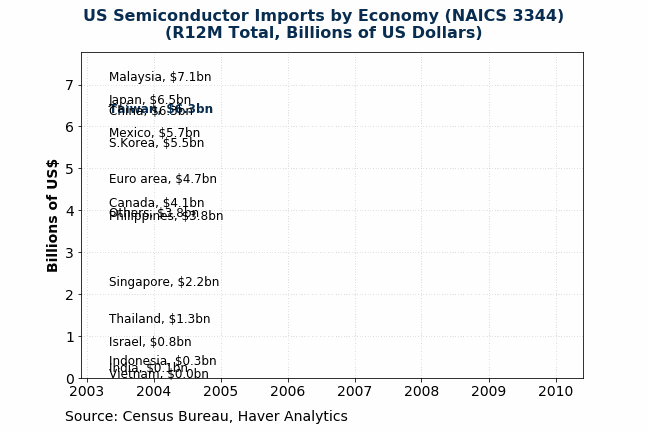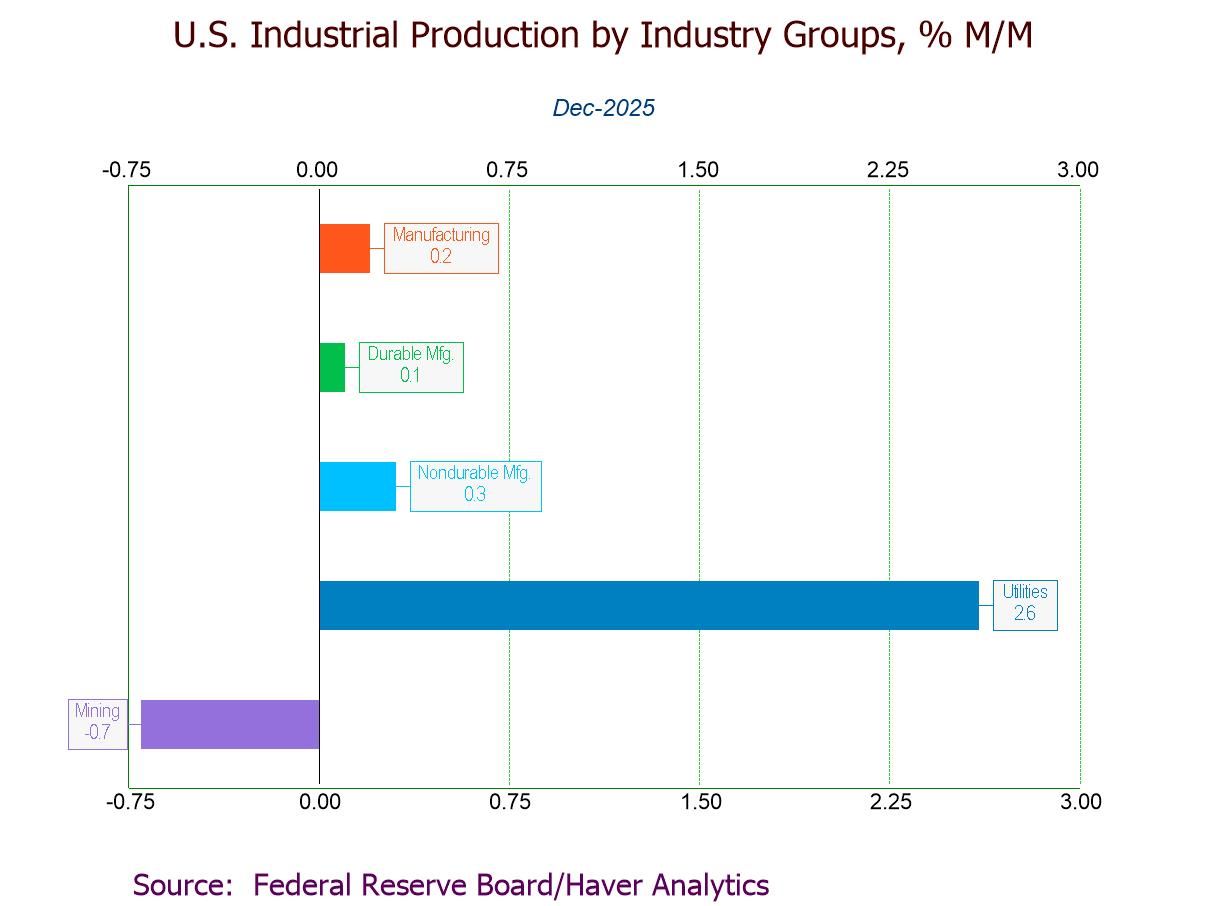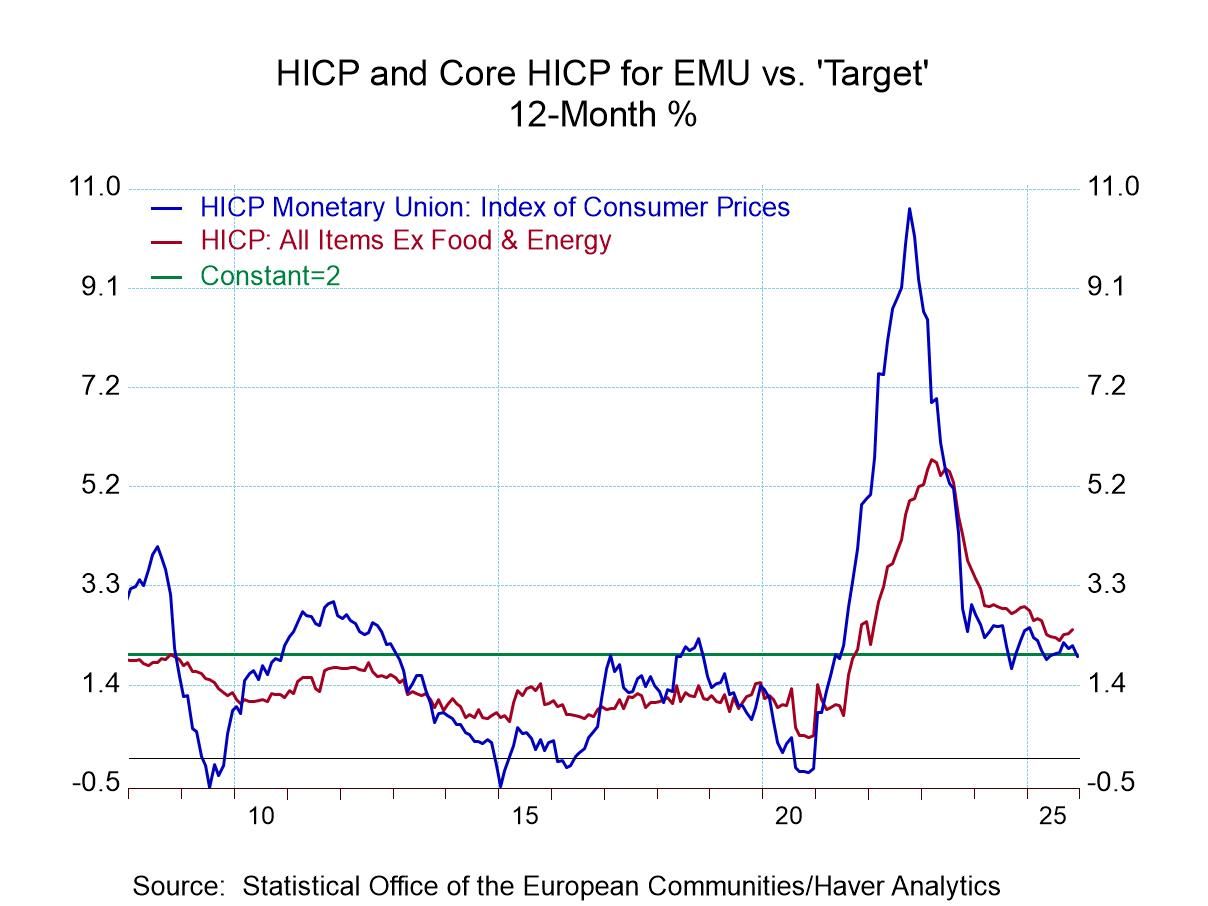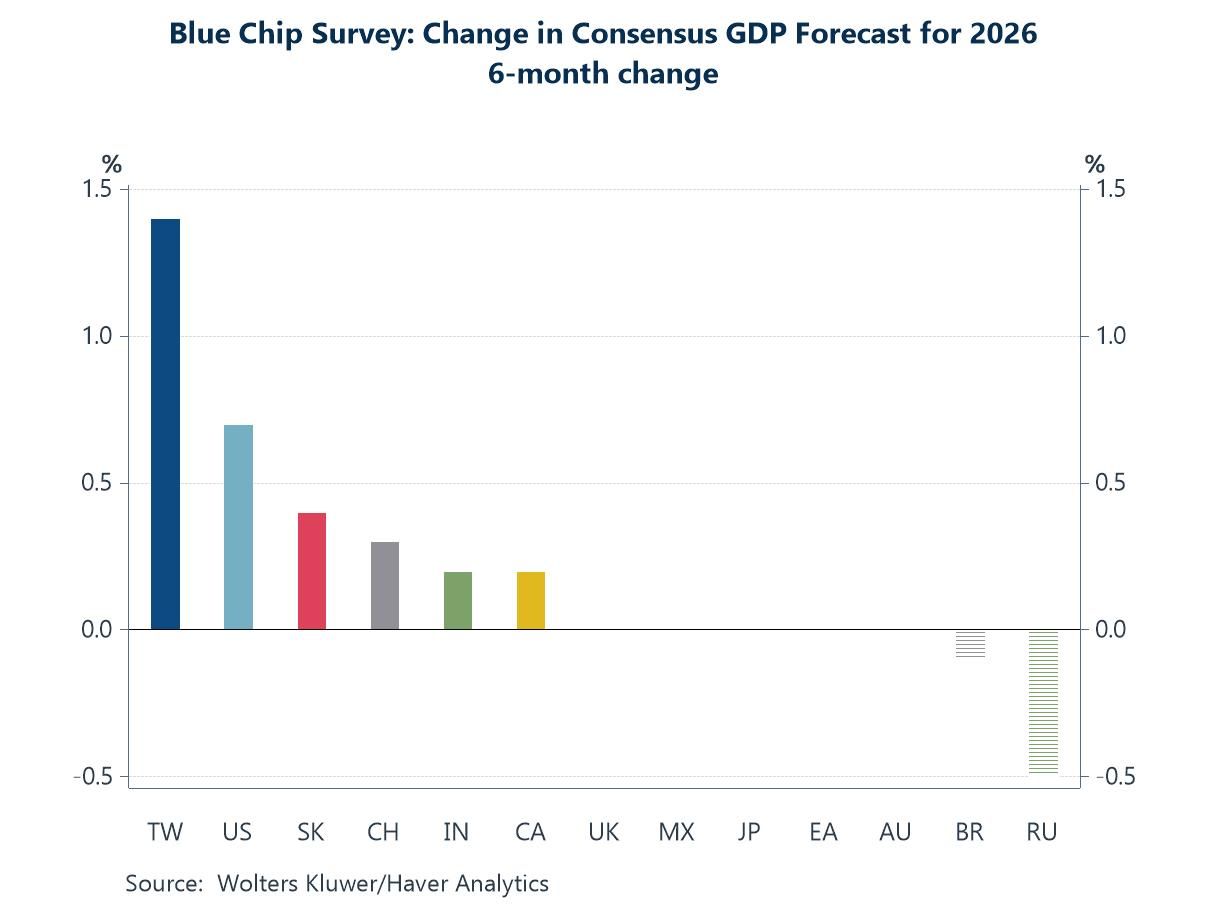 Global| Dec 12 2006
Global| Dec 12 2006U.S. Trade Deficit Lowest in Over One Year
by:Tom Moeller
|in:Economy in Brief
Summary
The U.S. foreign trade deficit in October dropped to the lowest level since July of 2005. The $58.9B shortfall compared to an unrevised $64.3B during September and was shallower than Consensus expectations for a deficit of $63.0B. A [...]
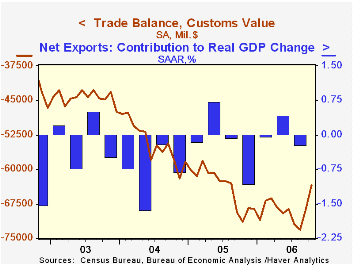
The U.S. foreign trade deficit in October dropped to the lowest level since July of 2005. The $58.9B shortfall compared to an unrevised $64.3B during September and was shallower than Consensus expectations for a deficit of $63.0B.
A seven dollar m/m drop in the cost of a barrel of crude oil to $55.47 from $62.52 in September helped imports of petroleum products to fall 13.5% (-12.7% y/y). The quantity of all energy related petroleum products also fell 3.3% (-7.5% y/y). In November crude oil prices recouped about half of the October decline.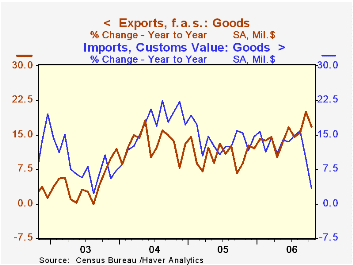
The falloff in petroleum lowered overall imports of goods & services in October by 2.7% m/m. In addition, imports of nonpetroleum products fell for the second month. The 0.7% (+6.7% y/y) drop reflected a second decline in capital goods imports (10.0% y/y) and a 1.6% (-0.1% y/y) falloff in automotive vehicles & parts. Working in the other direction, nonauto consumer goods imports rose 0.6% (10.9% y/y) while imports of advanced technology products surged (14.6% y/y).
Total exports rose just 0.2%, the smallest gain in three months, held back by a 0.7% (+2.5% y/y) decline in automotive and a slim 0.1% (14.3% y/y) rise in capital goods exports. Exports of complete civilian aircraft slipped (+38.9% y/y) but aircraft parts & engines were firm. Computer exports surged 15.4% (14.4% y/y) but exports of telecommunications equipment slipped 2.7% (+15.9% y/y). Exports of nonauto consumer goods recovered September's drop and jumped 3.6% (17.3% y/y).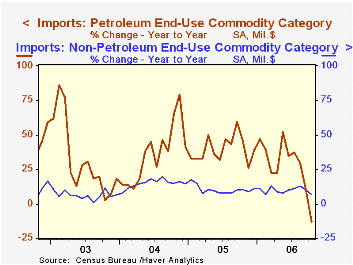
Service exports jumped 1.2% (7.8% y/y) as travel exports recovered the September decline with a 1.2% (5.2% y/y) increase and passenger fares firmed 1.3% (-1.0% y/y). Imports of services rose 0.8% (8.6% y/y) reflecting strength in travel (7.2% y/y) and passenger fares (3.7% y/y).
The U.S. trade deficit in goods with China deepened to another record of $24.4B in October ($201.5B in 2005) though exports surged 6.6% (25.2% y/y) but imports rose 6.2% (20.2% y/y). The balance of goods trade with the newly industrialized Asian countries nearly tripled m/m to a deficit of $1.6B (-$15.8B in 2005) as exports fell 4.9% (+8.1% y/y) and imports rose 5.2% (7.4% y/y).
The lower value of the dollar helped US exports to Europe jump another 3.0% (20.8% y/y). Imports just recovered a September decline with a 10.2% (2.9% y/y) rise. Exports to Germany surged 6.8% (35.8% y/y) and the 9.3% gain in imports (-2.2% y/y) didn't recover a 12.9% September decline.
Truths About Trade and the Dollar from the Federal Reserve Bank of Minneapolis is available here.
| Foreign Trade | October | September | Y/Y | 2005 | 2004 | 2003 |
|---|---|---|---|---|---|---|
| U.S. Trade Deficit | $58.9B | $64.3B | $66.6B (10/05) |
$716.7B | $611.3B | $494.9B |
| Exports - Goods & Services | 0.2% | 0.5% | 13.8% | 10.7% | 13.4% | 4.2% |
| Imports - Goods & Services | -2.7% | -1.9% | 4.2% | 13.0% | 16.7% | 8.3% |
Tom Moeller
AuthorMore in Author Profile »Prior to joining Haver Analytics in 2000, Mr. Moeller worked as the Economist at Chancellor Capital Management from 1985 to 1999. There, he developed comprehensive economic forecasts and interpreted economic data for equity and fixed income portfolio managers. Also at Chancellor, Mr. Moeller worked as an equity analyst and was responsible for researching and rating companies in the economically sensitive automobile and housing industries for investment in Chancellor’s equity portfolio. Prior to joining Chancellor, Mr. Moeller was an Economist at Citibank from 1979 to 1984. He also analyzed pricing behavior in the metals industry for the Council on Wage and Price Stability in Washington, D.C. In 1999, Mr. Moeller received the award for most accurate forecast from the Forecasters' Club of New York. From 1990 to 1992 he was President of the New York Association for Business Economists. Mr. Moeller earned an M.B.A. in Finance from Fordham University, where he graduated in 1987. He holds a Bachelor of Arts in Economics from George Washington University.



